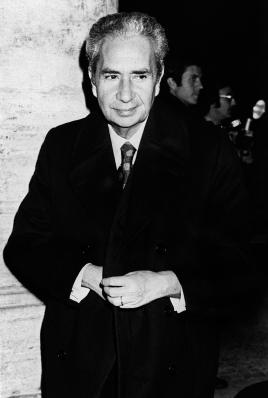Avenues and horizons
In the present political scenario the thought of Aldo Moro is not revived to elicit nostalgia and memories – notwithstanding their great human value – but to demand the recovery of the profound motivations of a commitment, a service and a responsibility for history and for the young generations

“It is not important that we think the same things, that we imagine and hope the same identical destiny. Instead it is extraordinarily important that, given the faith of everyone in their own original contribution to the salvation of man and the world, everyone be allowed to breathe freely, each with their own intangible space to live their experience of renewal and truth, all mutually connected in the common acceptance of the fundamental pillars of freedom, dialogue and respect.”
It one of the thoughts of Aldo Moro that with many others resurface 40 years after that 16th of March 1978. The images of the massacre committed by the Red Brigades, followed by those of the 55-day long ordeal and the murder of May 9, remain indelible.

But not only the account of those days must remain of the story and teachings of a man who had carried out his political commitment as a service to the truth and as a demanding, lofty form of charity.
Those days continue bearing witness to an open wound: hanging shadows and attempts to remove a memory that calls into question the Country’s collective conscience.

In the current political scenario Aldo Moro’s line of thought is not revived to elicit nostalgia and memories – notwithstanding their great human value – but to demand the recovery of the profound motivations underlying a commitment, a service and a responsibility for history, for the young generations.
Recurs a famous phrase of Aldo Moro:
“Those with more thread will weave the cloth.”
The thread is reason, the act of ‘weaving’ is the intellectual ability to argue proposals, choices, goals, and to engage in dialogue with differences without renouncing the truth, without concealing the bitterness of reality for fear of losing votes.
In this exercise, assimilated in his academic years, notably at the Italian Catholic Federation of University Students, Moro had more doubts than certainties. Doubt was never experienced as disorientation but as a constant, passionate and steadfast quest for what is essential for man.
He possessed the Christian certainty that every man is the bearer of a shred of the truth but that no single man, class or political party can purport to have the whole truth.
“Thus in the political domain there was no alternative to an exhaustive democratic option – remarked his ‘student’ Mino Martinazzoli –, the only one capable of guaranteeing the coexistence of the diverse hopes of truth and ensure that they may converge and merge in the quest for the common good.”
The lesson of Aldo Moro is thus an appeal to “those who have more thread”, namely, to those who can best interpret the signs of the times through the lenses of faith and reason, so as to never stop “weaving the cloth” of truth, freedom and justice.